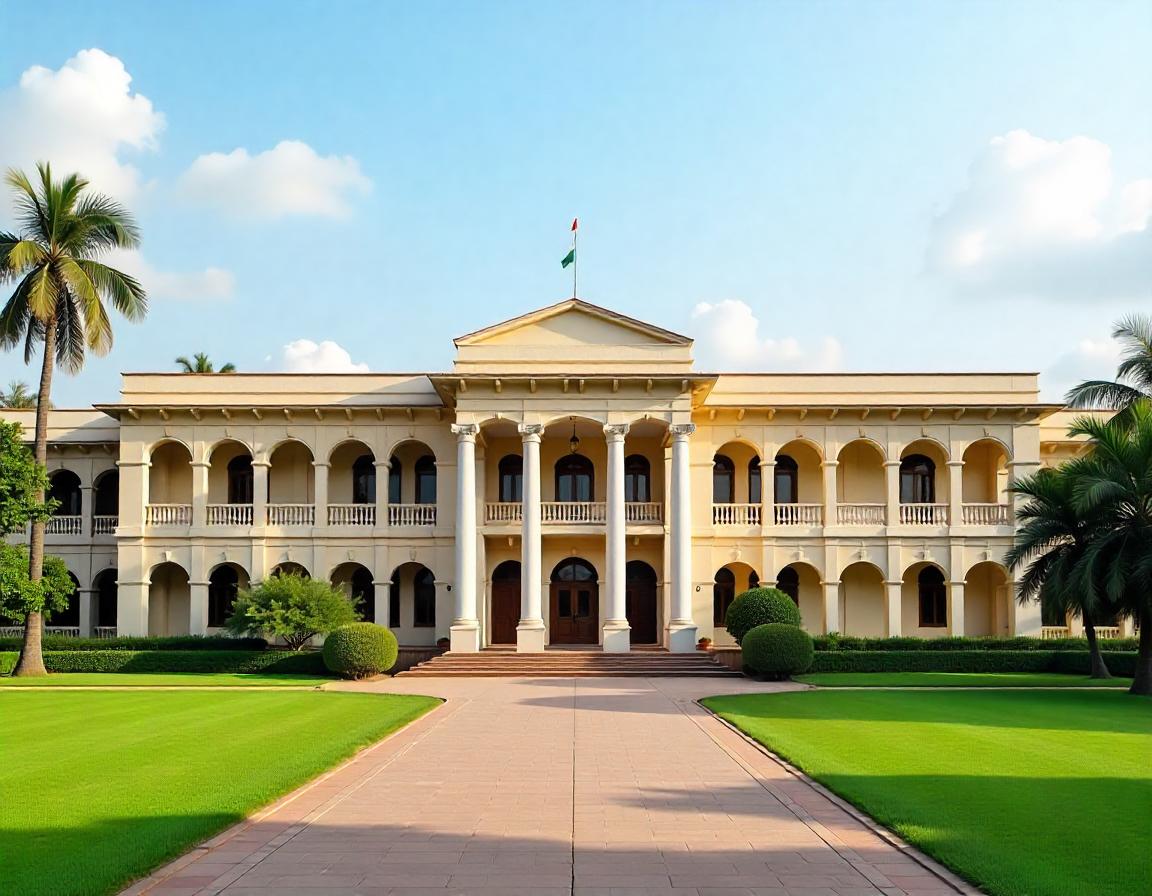Types of Colleges & Universities in India

India has a vast and diverse higher education system with many types of colleges and universities offering a range of programs. These institutions vary in their governance, curriculum, focus, and the degrees they offer. Here’s a breakdown of the main types of colleges and universities in India:
1. Central Universities
- Overview:
These universities are established and funded by the Government of India and are regulated by the Ministry of Education. They often have a national presence, attracting students from across the country. - Key Features:
- Offer a wide range of undergraduate, postgraduate, and research programs.
- Known for high academic standards and national recognition.
- Examples:
- University of Delhi (DU)
- Jawaharlal Nehru University (JNU)
- Banaras Hindu University (BHU)
2. State Universities
- Overview:
These universities are established by the state governments. They offer degrees in a variety of disciplines and have a strong presence within the state. - Key Features:
- Governed by state legislation.
- Offer programs similar to central universities but with a focus on state-specific needs and policies.
- Examples:
- University of Mumbai
- University of Calcutta
- Bangalore University
3. Private Universities
- Overview:
These universities are established by private organizations and are typically self-financed. They have gained popularity due to modern facilities and a diverse range of academic programs. - Key Features:
- Often have a more flexible curriculum and the freedom to introduce innovative courses.
- Many private universities focus on high-tech courses, management programs, and international collaborations.
- Examples:
- Shiv Nadar University
- O.P. Jindal Global University
- Amity University
4. Deemed Universities
- Overview:
These are institutions recognized by the University Grants Commission (UGC) as being of high academic standards and are granted the status of “Deemed University.” They often focus on specialized fields and have more autonomy. - Key Features:
- Have the freedom to design their own curriculum.
- Often cater to specialized fields like engineering, management, and medical sciences.
- Examples:
- Tata Institute of Social Sciences (TISS)
- Birla Institute of Technology and Science (BITS Pilani)
- VIT University (VIT Vellore)
5. Institute of National Importance (INI)
- Overview:
These are specialized institutions established by the Government of India for the promotion of higher education and research in specific fields like engineering, medicine, law, and management. - Key Features:
- Focus on research and development.
- Offer world-class infrastructure and training in various professional fields.
- Examples:
- Indian Institutes of Technology (IITs)
- Indian Institutes of Management (IIMs)
- All India Institute of Medical Sciences (AIIMS)
6. Engineering and Technology Institutes
- Overview:
These colleges specialize in engineering and technology programs, offering undergraduate (B.Tech) and postgraduate (M.Tech) degrees. Many of these institutes are among the top-ranked in India and abroad. - Key Features:
- Focus on fields such as Computer Science, Civil Engineering, Mechanical Engineering, Electrical Engineering, and more.
- Strong research programs and industry collaboration.
- Examples:
- Indian Institutes of Technology (IITs)
- National Institutes of Technology (NITs)
- BITS Pilani
7. Medical Colleges
- Overview:
These colleges specialize in medical education and training. They offer undergraduate (MBBS) and postgraduate (MD/MS) medical degrees and conduct research in medical sciences. - Key Features:
- Provide clinical and practical training in hospitals.
- Accredited by the Medical Council of India (MCI) or National Medical Commission (NMC).
- Examples:
- All India Institute of Medical Sciences (AIIMS)
- King George’s Medical University, Lucknow
- Christian Medical College (CMC), Vellore
8. Law Colleges
- Overview:
Law colleges in India offer programs like BA LLB (5-year integrated course), LLB (3-year course), and LLM (postgraduate law degree). These institutions prepare students for legal practice, judiciary services, or corporate law. - Key Features:
- Most law colleges are affiliated with universities, but some independent law schools offer specialized programs.
- Focus on legal studies, case law, legal writing, and internships.
- Examples:
- National Law Universities (NLUs)
- Faculty of Law, University of Delhi
- Symbiosis Law School, Pune
9. Management Colleges
- Overview:
These colleges focus on business and management education, offering programs like MBA, Executive MBA, and PGDM (Postgraduate Diploma in Management). Many management institutes in India are globally recognized for their academic rigor. - Key Features:
- Specializations in areas like finance, marketing, HR, operations, and entrepreneurship.
- High emphasis on industry placements and internships.
- Examples:
- Indian Institutes of Management (IIMs)
- Xavier Labour Relations Institute (XLRI), Jamshedpur
- Indian School of Business (ISB), Hyderabad
10. Art, Science, and Commerce Colleges
- Overview:
These colleges offer undergraduate and postgraduate programs in the fields of arts, science, and commerce. They provide a wide range of degrees in subjects like English, History, Physics, Chemistry, Mathematics, Economics, and more. - Key Features:
- Some focus on a specific field of study, while others offer a broad range of subjects.
- Many have a strong emphasis on academic learning, research, and co-curricular activities.
- Examples:
- St. Xavier’s College, Mumbai (Arts and Science)
- Presidency College, Kolkata (Arts, Science, Commerce)
- Loyola College, Chennai (Arts, Science)
11. Vocational Colleges
- Overview:
These colleges offer short-term and long-term diploma courses, focusing on skill development in fields such as hospitality, fashion design, media, journalism, and more. - Key Features:
- Emphasis on hands-on training and practical experience.
- Generally shorter duration courses compared to traditional degrees.
- Examples:
- National Institute of Fashion Technology (NIFT)
- Aptech, NIIT (IT and Software Training)
- Institute of Hotel Management (IHM)
12. Distance Learning and Online Colleges
- Overview:
Many universities and institutions in India offer distance education and online programs for those who cannot attend regular classes. These include undergraduate, postgraduate, and diploma programs in various fields. - Key Features:
- Flexibility in terms of location and study hours.
- Often designed for working professionals or those looking for flexible learning.
- Examples:
- Indira Gandhi National Open University (IGNOU)
- Dr. B.R. Ambedkar Open University (BRAOU)
- University of Mumbai (Distance Learning Program)
13. Agricultural and Veterinary Colleges
- Overview:
These institutions specialize in agricultural sciences, animal husbandry, veterinary sciences, and related fields. - Key Features:
- Provide research-oriented programs and practical experience in agriculture and veterinary science.
- Examples:
- Indian Agricultural Research Institute (IARI), New Delhi
- College of Veterinary Sciences, Punjab Agricultural University
- National Dairy Research Institute (NDRI)









